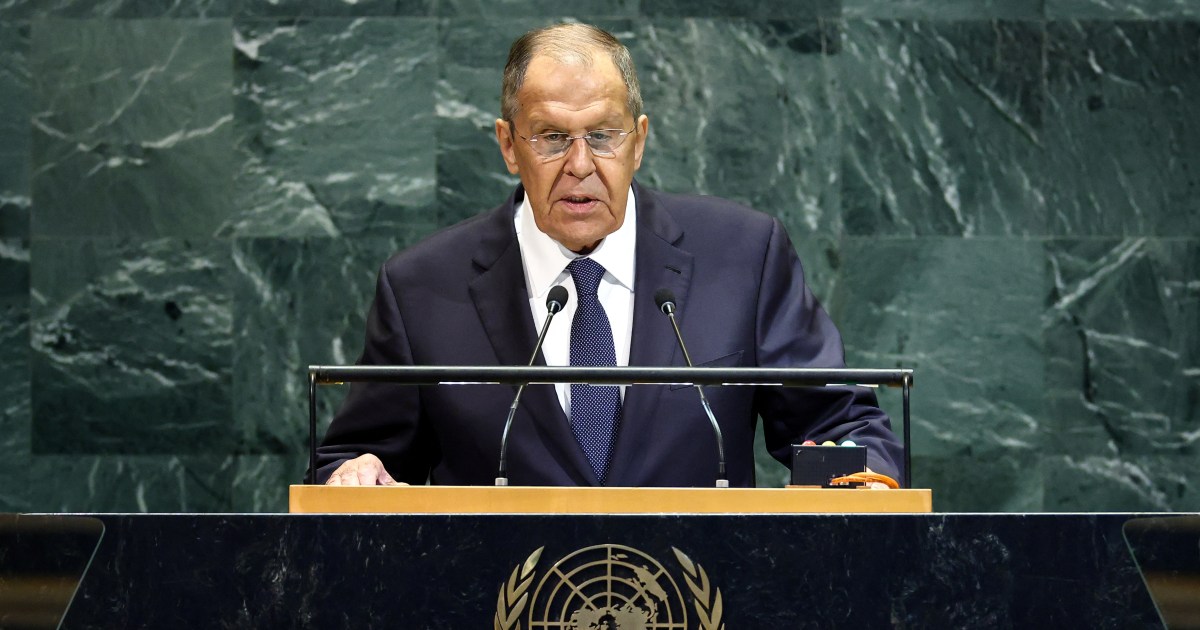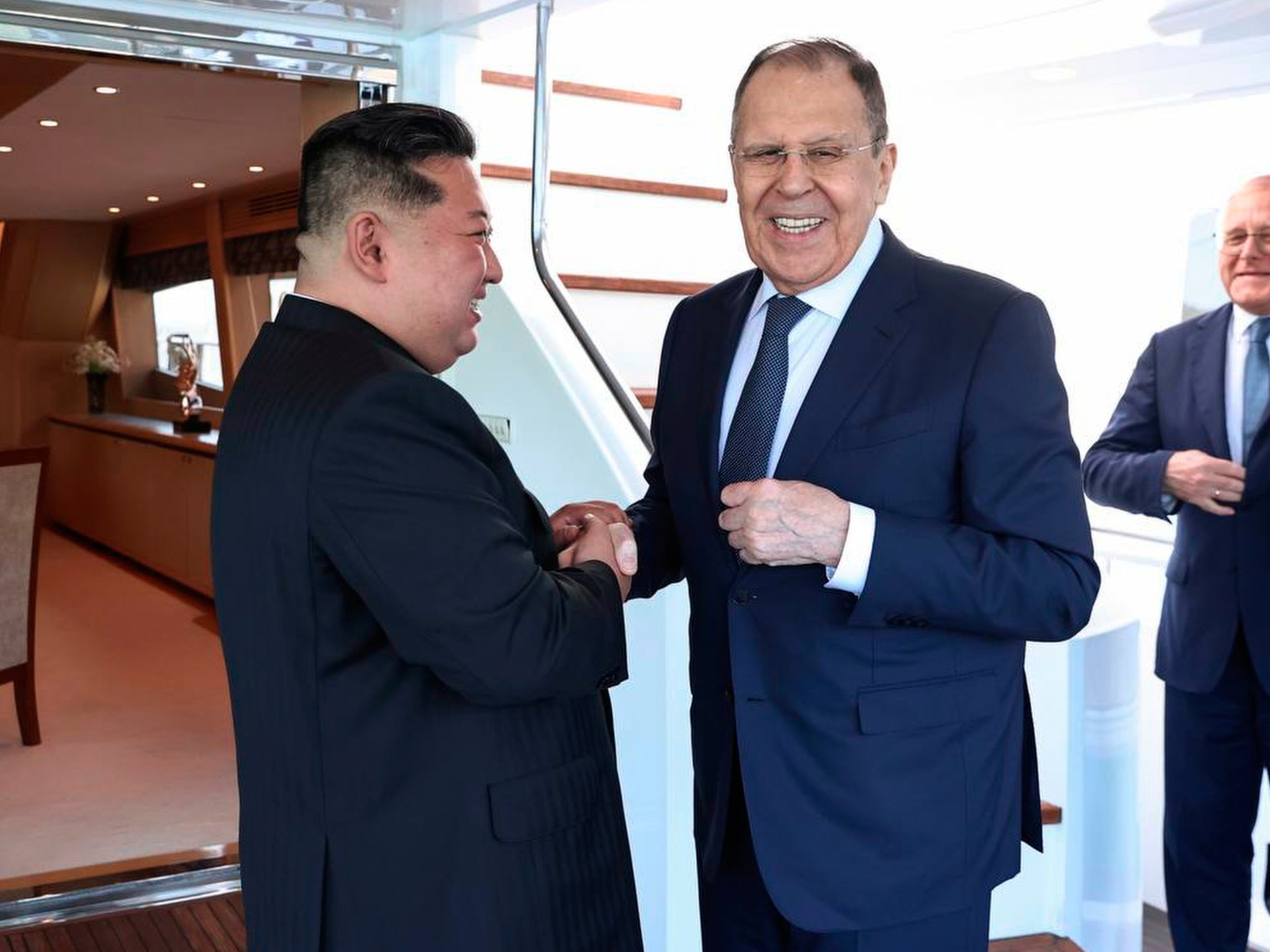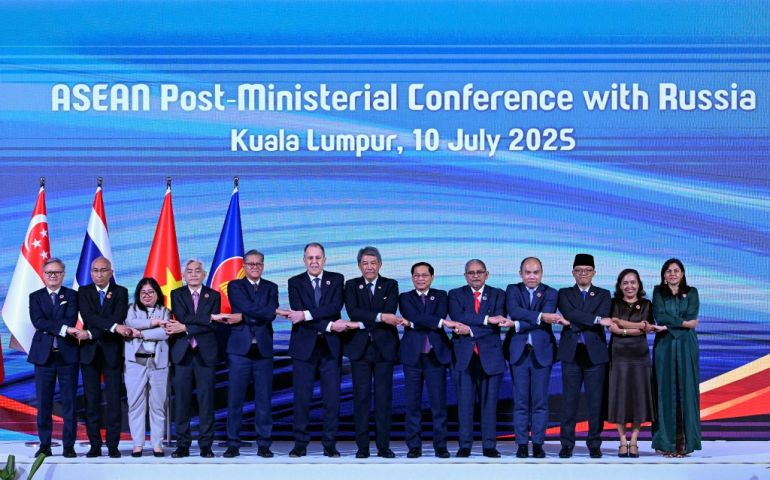Russia will give ‘decisive response’ if provoked by West, says Lavrov | Russia-Ukraine war News
Russian Minister of Foreign Affairs Sergey Lavrov has warned NATO and the European Union that “any aggression against my country will be met with a decisive response”.
Speaking at the United Nations General Assembly (UNGA) in New York on Saturday, Lavrov insisted that Moscow had no plans to attack the West, but that it was prepared to act if provoked.
Recommended Stories
list of 3 itemsend of list
His comments came as Ukrainian President Volodymyr Zelenskyy blamed Russia for recent drone and plane incursions in Europe.
“Russia is testing their ability to defend themselves and trying to influence societies so people begin to ask: ‘If we can’t protect ourselves, why should we keep supporting Ukraine?’. This is intended to reduce assistance to Ukraine, especially ahead of winter,” he wrote on X.
Moscow continues to deny violating Polish airspace with drones, and Estonian airspace with fighter jets, this month. It also says it played no role in the rogue drones spotted near airports in Denmark this week, which forced several airports to shut temporarily.
‘Some hopes’ for US-brokered peace
In his UN speech, Lavrov hit out at accusations from the West, blaming it for scaremongering about the possibility of a “third world war”.
“Russia is being accused of almost planning to attack NATO and EU countries. President [Vladimir] Putin has repeatedly debunked these provocations,” he said.
But Lavrov also insisted that his country still had “some hopes” for ceasefire talks with the United States over Moscow’s war in Ukraine, just days after US President Donald Trump appeared to align himself more closely with Kyiv by saying it could recapture all of the Ukrainian territory seized by Russia.
Trump’s comments, which were made after he met Zelenskyy on the sidelines of the UNGA, marked a significant change in tone. Previously, the US president had said that Kyiv needed to make concessions, arguing that it would never reclaim occupied territory seized by Russia since 2014.
Despite Trump’s statement on Tuesday, Lavrov still expressed a belief in the role of the US as a potential mediator.
“We have some hopes for the continuation of the Russian-American dialogue, especially after the summit in Alaska,” he told delegates at the UN headquarters on Saturday.
The Russian foreign minister suggested that the Trump administration wanted to “realistically resolve the Ukrainian crisis”.
“Russia and the US bear a special responsibility for the state of affairs in the world and for avoiding risks that could plunge humanity into a new war,” he added.
More villages taken in Donetsk and Dnipropetrovsk regions
Lavrov’s appearance at the UN followed claims by Russia on Saturday that it had captured three more villages in eastern Ukraine.
The Russian army said in a statement that it had taken the villages of Derylove and Maiske in the Donetsk region, and the settlement of Stepove in the Dnipropetrovsk region.
Meanwhile, Ukraine said it had launched a successful drone attack against an oil pumping facility in Russia’s Chuvashia region.
“The SBU [Ukrainian security service] continues to impose sanctions on the Russian oil sector, which brings the aggressor country excess profits that go to the war against Ukraine,” a Ukrainian official told Reuters.
An overnight Russian barrage killed one person and wounded 12 in Ukraine’s southeastern Kherson region, and damaged railways in the neighbouring Odesa region, according to the Ukrainian authorities.
As Kyiv attempts to improve its air defences to stop Russian missile and drone attacks, Zelenskyy said on Saturday that a Ukrainian delegation would head to the US for weapons talks in late September or early October.
Ukraine’s president added that his country had received a US-made Patriot air defence system from Israel a month ago, with two more expected to arrive later this year.
On Saturday, both Russia and Ukraine blamed each other for a four-day blackout at the Russian-occupied Zaporizhzhia nuclear plant. Although outages are common, it is the longest so far in the war.
The plant’s six reactors have been off since Moscow seized it shortly after its full-scale invasion in February 2022. However, the facility still needs power to keep its cooling and safety systems operating to prevent its reactors from melting.



![Family photo of the attendees of the Association of Southeast Asian Nations (ASEAN) Post-Ministerial Conference with Russia during the 58th ASEAN Foreign Ministers meeting and related meetings at the Convention Centre in Kuala Lumpur on July 10, 2025. [Mohd Rasfan/ AFP]](https://www.occasionaldigest.com/wp-content/uploads/2025/07/000_66CV49R-1752135088.jpg)